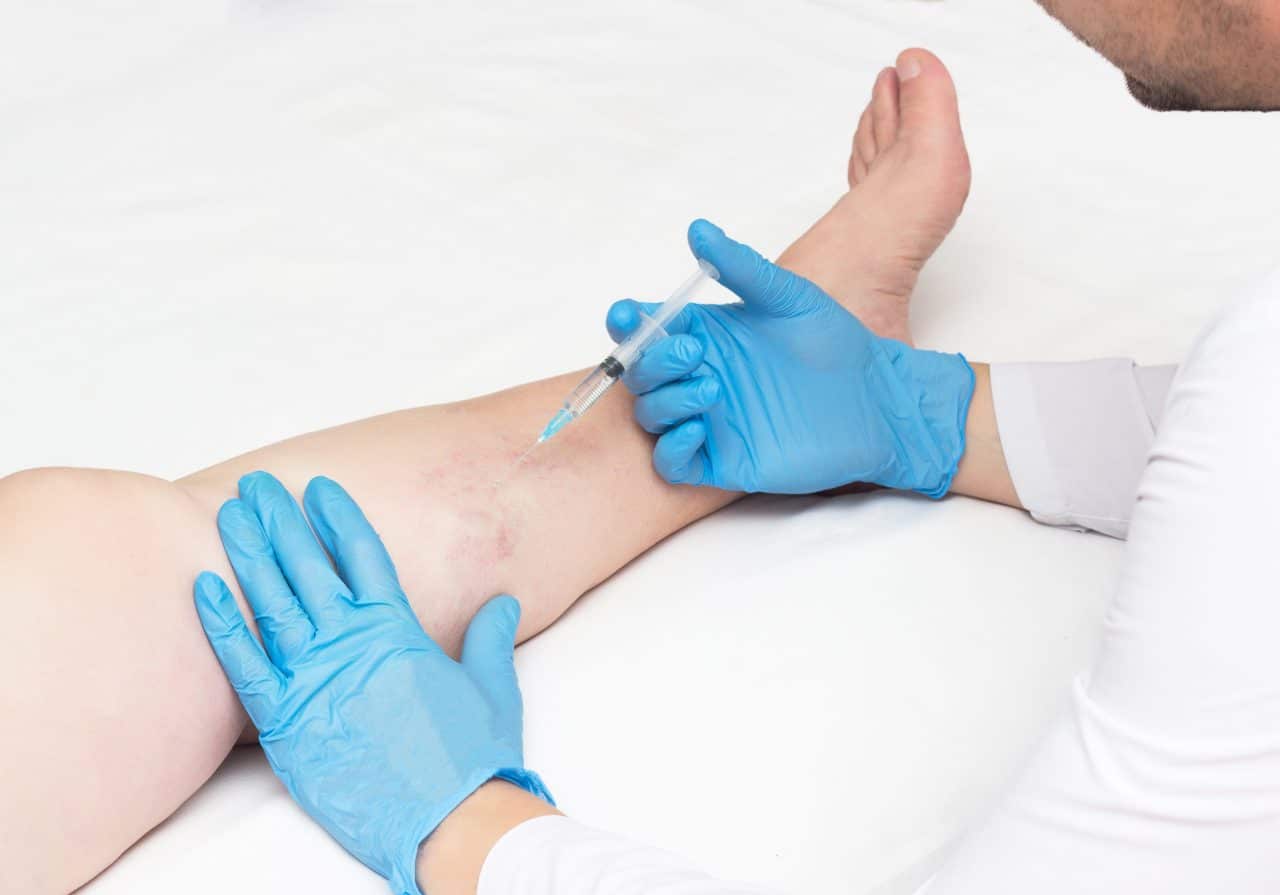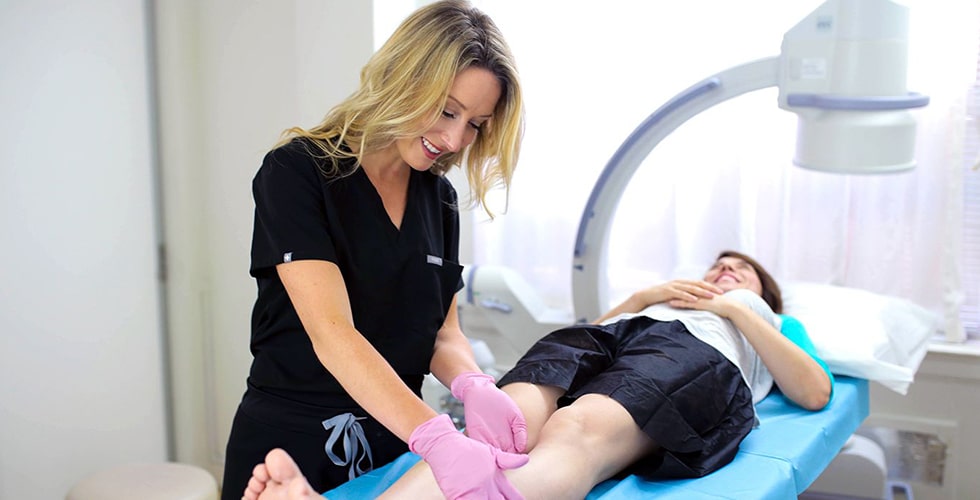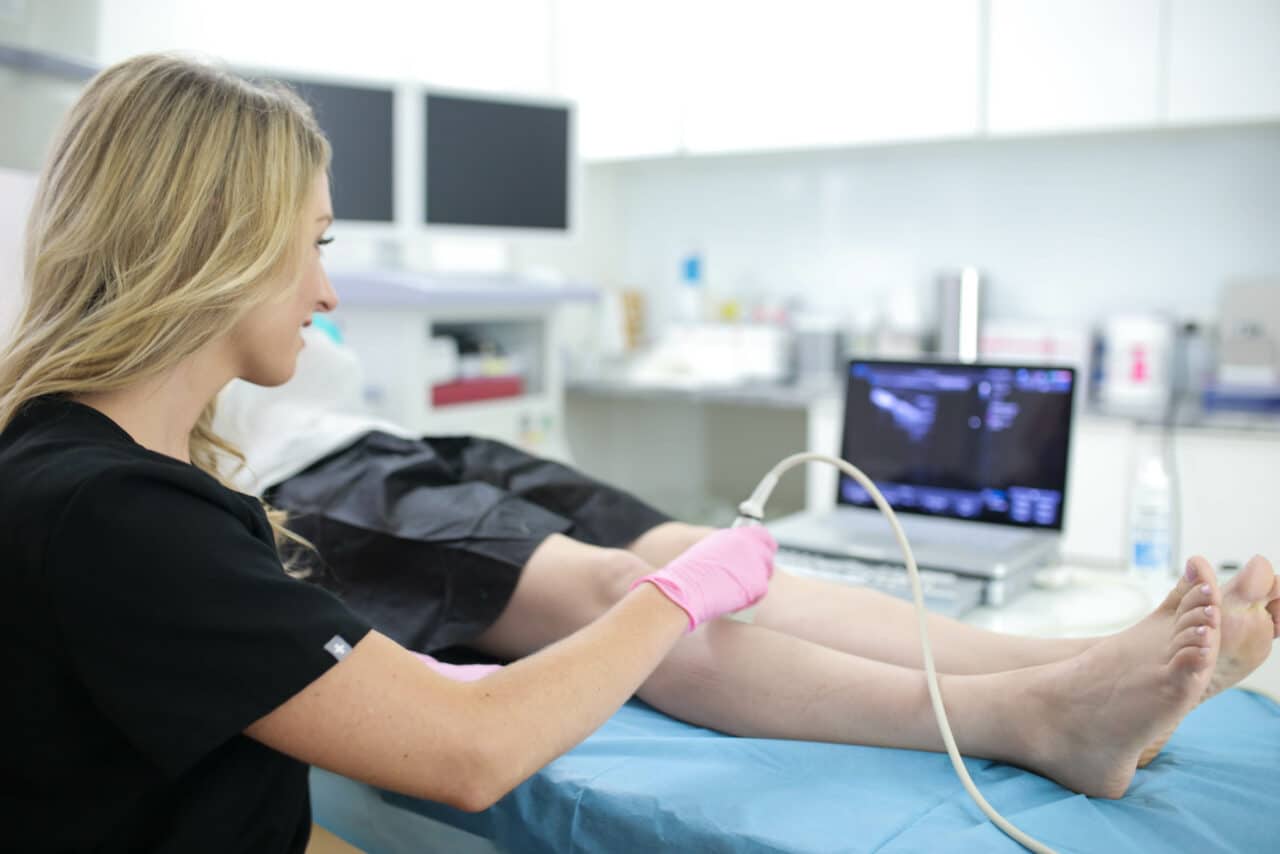Patients can determine their condition by examining bulging and twisted veins that appear on their legs or ankles. These veins provide an unattractive appearance while causing discomfort and pain together with tissue swelling. Vein centers represent facilities that help patients with both the management and treatment of these veins. Vein centers exist to help clients with varicose veins, yet the specific services these facilities provide for vein treatment remain unclear. The information will be presented at a basic level.
What do vein centers do?
Vein centers operate as specialized medical facilities that evaluate and treat conditions affecting veins through procedures for both varicose veins and spider veins and circulatory diseases. The medical staff in these centers consists of phlebologists who have expertise in vein care beyond regular doctors. Advanced medical technology at these centers enables effective treatment of veins by addressing symptoms such as leg pain, heaviness, and discomfort through specialized treatments. Vein treatment clinic differ from regular medical practices because they deliver specific vein treatments that enhance medical performance and visual outcomes. The centers structure their services to provide both medical treatment and aesthetic focus, making vein interventions easily accessible and effective.

How Do Vein Centers Help?
1. Diagnosis and Screening:
Before beginning varicose vein treatment, doctors must properly detect the condition in patients. Vein centers possess tools that enable detailed screenings for patients. The determination of blood circulation patterns in veins is possible through an ultrasound diagnostic procedure. The ultrasound diagnostics help medical staff determine which method of varicose vein treatment near me will work best for individual patients.
2. Non-Surgical Treatments:
Vein centers provide multiple effective non-surgical procedures even though some patients do not require surgical intervention. For example:
Medical staff uses Sclerotherapy to eliminate varicose veins through strategic solutions that help reduce the vessel size until complete disappearance occurs.
A laser device enables medical practitioners to close off problem veins through incisionless procedures. Patients benefit from this treatment due to its speed and simplicity as well as minimal need for recovery time.
3. Minimally Invasive Surgery (If Needed):
Medical experts need to perform surgery on severe cases of varicose veins. The medical facility performs vein procedures that require minimal surgical intervention. DVLT, combined with RFA, has become one of the most chosen treatment methods within vein centers. The minimally invasive procedures offer patients benefits through decreased surgery complexity, rapid recovery times, and minimal risks of complications.

4. Personalized Care:
Your fulfillment is the main reason why vein centers provide exceptional services. Since every person's veins possess unique characteristics, the staff devises treatment plans that specifically match their needs. Staff members at vein centers will support patients through all their treatment needs, ranging from basic to extensive interventions.
The need to have insurance plans becomes essential to protect your monetary savings. The insurance prices adjust in proportion to treatment facilities that lower treatment costs through individualized approaches to medical solutions. The doctors' recommendation of an insurance policy enables you to handle your treatment expenses effectively.
Final Thoughts
Approximately fifty percent of people suffer from varicose veins, which means you should not accept living with this health condition indefinitely. Vein centers provide specialized medical care in combination with efficient treatments while offering customized services to deal with your vein condition. People struggling with varicose veins should get an assessment at a vein center. The path to better health leads your way to superior physical appearance. Centers for Vein Treatment in New Jersey has the assessment work of medical specialists who will help you determine which treatment option suits your needs the most. Your legs will thank you!
Millions of people worldwide experience the vascular conditions of varicose veins together with their associated spider veins. The seemingly trivial condition typically causes discomfort along with pain, which potentially evolves into serious complications that fail to receive proper treatment. Several treatment procedures exist to deal with these issues. The process of understanding your options enables you to choose treatments that result in optimal results. Through this article, you will read a detailed description of vein treatment near me.
Understanding Vein Conditions
Before going further, it is necessasry that you are aware of the vein conditions and how the vein works. Blood travels through veins to return it to the heart through their essential functionality. Blood accumulation inside veins becomes common when vein valve weaknesses or damage occur, which results in the development of varicose or spider veins. The affected legs may experience swelling or aching pain in combination with cramps and a heavy feeling. Failed treatment of vein disorders results in either skin ulcers or blood clots. Evolving medical care rapidly at the beginning of treatment helps stop further complications.

Non-Invasive and Minimally Invasive Treatments
Advancements in medical technology have made vein treatments safer and more effective. The following are some of the most common options. If you are looking for the option for “what are the treatment options for varicose veins,” then you can follow these steps:
Lifestyle Changes: For mild cases, a Phlebologist (a vein specialist) may ask for lifestyle adjustments that can help alleviate symptoms and prevent worsening conditions. These include:

-
Regular exercise to improve circulation
-
Elevating the legs to reduce swelling
-
Wearing compression stockings to support blood flow
-
Maintaining a healthy weight to reduce pressure on veins
Sclerotherapy: A medicated solution is injected into affected veins through sclerotherapy to make the veins collapse and eventually disappear. Our vein experts ensure that small varicose and spider veins react well to sclerotherapy treatments because the procedure requires little recovery.
VenaSeal: A medical adhesive called VenaSeal is a new technique to tighten veins inside the body. Patients who receive VenaSeal treatment experience reduced discomfort because it avoids both heat applications and sclerosant drug administration and delivers speedy postoperative recovery.
Ambulatory Phlebectomy: This becomes an option for medical professionals when treating sizeable varicose veins. The surgical technique includes constructing small incisions for manual removal of troubled veins from the body. Procedure outcomes include permanent solutions combined with minimal visible signs because it happens under local anesthesia.
Surgical Options: Patients may need traditional vein stripping surgery as a surgical option for severe vein disease. The surgical procedure requires either the removal or ligation of the big damaged veins. Medical facilities continue to perform vein stripping surgery for patients who have severe vein disease even though the procedure happens less often.
Choosing the Right Treatment
A patient's best course of care for vein treatment depends on both their medical situation and their physical well-being alongside their treatment preferences. Customers need to visit a vascular vein treatment specialist, along with vein clinics for correct diagnosis and appropriate treatment decisions. The insurance company provides coverage for medical procedures, which their providers approve as essential.
Summing It Up
Through this article, you might have been familiar with vein treatment doctors.
Get your treatment started. Coming to terms with all vein treatment alternatives helps patients gain control over their vascular well-being. Patients have access to different effective treatments that combine lifestyle adjustments with minimally invasive procedures and surgical interventions to regain comfort and self-assurance. The assessment from a professional advisor allows you to get services customized for your individual case.
Vein health is the prominent thing that you need to know about so that your overall health is in a better position. The health of veins represents an essential factor for general well-being, although most individuals disregard this aspect until vein problems cause physical symptoms. Getting the right treatment becomes essential when you experience any of the vein conditions along with their various forms. In this article, you will read about vein health and treatments,
Understanding Vein Issues
The function of veins in returning blood to the heart may be compromised when they experience weakening or damage. Common vein issues include:
-
The condition known as varicose veins results in enlarged vein tissue, which leads to distress and tissue discomfort.
-
Touching the skin surface, one can find these tiny web-shaped vein structures known as spider veins.
-
Chronically insufficient veins create a condition that makes it hard for veins to pump blood properly toward the heart.

What Kind of Doctor is a Vein Specialist?
If you are experiencing vein-related issues, you may wonder, what kind of doctor is a vein specialist? So, a vein treatment specialist is a vascular surgeon, phlebologist, or interventional radiologist. These professionals diagnose and treat vein conditions using advanced medical techniques.
Vein Treatments for Spider and Varicose Veins
The treatment options for veins depend on the level of severity that affects the patient. Some common treatments include:
-
Medical professionals use sclerotherapy to perform minimal invasiveness by administering solutions that make affected veins close off.
-
The endovenous laser treatment (EVLT) employs laser energy for varicose vein treatment.
-
The procedure uses radiofrequency energy to end the function of damaged veins through radiofrequency ablation (RFA).
-
A medical team performs microphlebectomy as a surgical intervention that treats varicose veins by making small incisions.
-
People benefit from compression therapy by wearing compression stockings, which enhance blood circulation and minimise symptoms.

If you’re looking for vein treatments, go for a reputable vein clinic in your area will help you find specialists who provide these services at affordable prices.
Expectations at a Vein Clinic
Visiting a vein clinic for the first time can be intimidating, but knowing what to expect can ease concerns. Here’s what a typical visit involves:
1. Consultation & Evaluation: The vein treatment specialist will assess your symptoms and medical history.
2. Ultrasound Checks: Medical professionals conduct diagnostic ultrasound checks, which help identify vein conditions and underlying problems through pictures.
3. Customized Treatment Plan: The doctor will select the optimal treatment plan because of individualized evaluation results.
4. Procedures: These take place as office-based treatments, which result in brief recovery periods.
5. Aftercare: Post-treatment recovery care instructions regarding healing practices and optimal result achievement are provided to all patients.
Vein Treatment New Jersey
There are many specialty vein clinics on Long Island that provide state-of-the-art vein care if you’re looking for it. Experienced vein doctors on Long Island offer all-encompassing care to enhance circulation and alleviate discomfort.
Take Charge of Your Vein Health
Vein health and general well-being can be preserved with early management, but neglecting vein issues might result in difficulties. The first step to healthier legs and a higher quality of life is to see a vein specialist, regardless of whether you require a consultation, diagnosis, or treatment. You can also know the “Are varicose veins covered by insurance?” so that you can be prepared by the budget.



